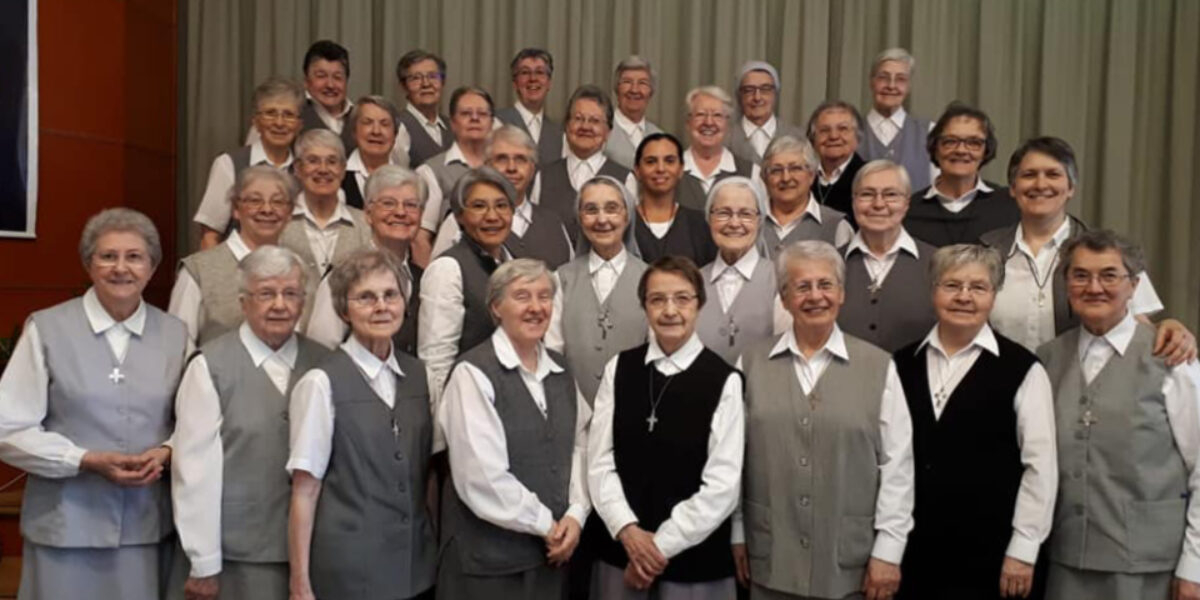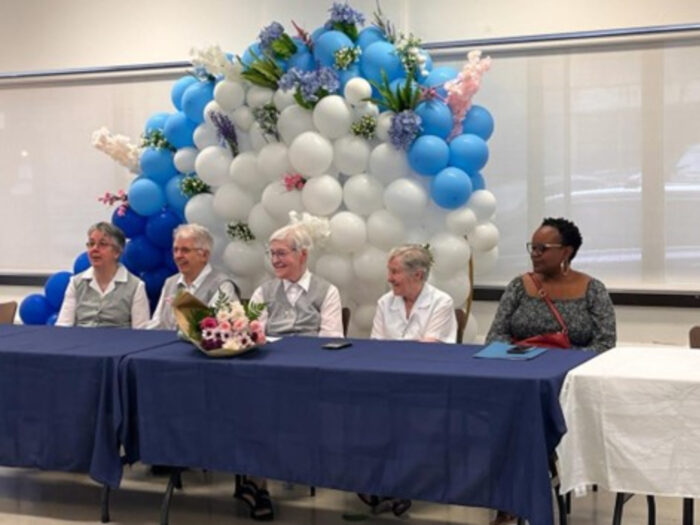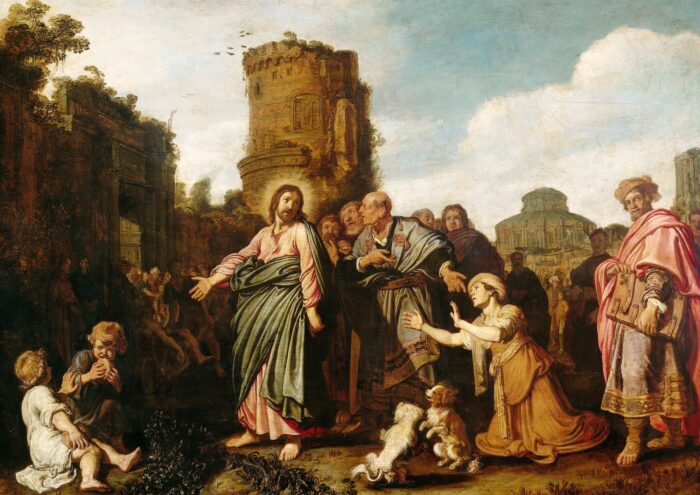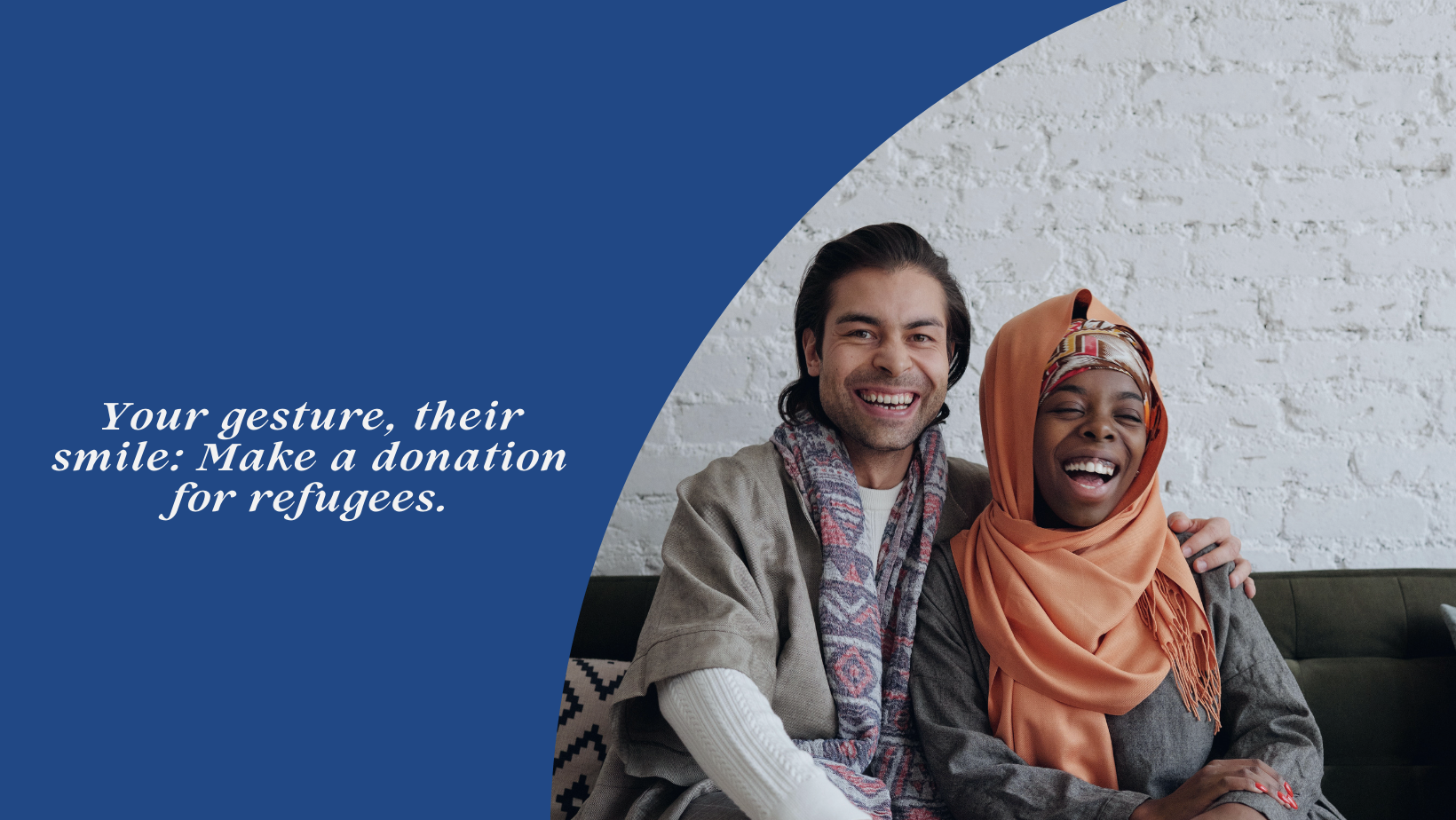Interview with our featured donors: The Religious of Jesus-Mary
22 January 2025|Joanna Kozakiewicz

Religious communities are largely responsible for what we can offer to refugees, migrants and forcibly displaced persons. Without the support of our donors, the Jesuit Refugee Service could not be as involved as it is.
Whether it is through our simulation exercise, A Journey into Exile, which raises awareness on the issues faced by refugees, refugee sponsorship or by sharing refugee stories on our social platforms, the JRS could not function without the involvement of our donors, such as the Congregation of the Religious of Jesus-Mary(JM Canada).
They were founded in 1818 in Lyon, France, to help orphans who were victims of the French Revolution. Then they moved to Canada in 1855 to various missions and locations.
In 2023, they accepted the invitation of our National Director, Norbert Piché, to become involved in our mission for refugees.
The community’s Provincial Superior Sr. Françoise Barras, and their Reponsible of Sponsorship Delphine Umubyeyi, agreed to answer our questions.
Why are the sisters of your congregation involved in the cause of refugees, migrants and forcibly displaced people ?
Sister Françoise Barras: We are involved because we were invited and we responded to the call. It’s been many years, and over the years we’ve developed a great interest in and love for the refugees whom we now know by their names, their stories and their links to us.
What’s more, it’s a cause that’s close to our hearts, not just in Canada, but in other countries too, because our congregation is present in 29 countries. Many of our sisters work with refugees ‘at the source’, for example in Morocco and California on the border with Mexico, or ‘in transit’, for example in Rome.
How is JM Canada involved in this cause?
Sr. Françoise: We have been involved in various ways since 1985. For many years, we have sponsored dozens of refugees, mainly Ethiopians in Montreal and others in Quebec.
Delphine Umubyeyi: At the moment, when it comes to approving refugee files, we meet as a board of directors with all the member sisters to approve the refugees we will sponsor. We then appoint a person to act as spokesperson for the sponsorship file, as required by the Ministry of Immigration; this function has been carried out by a lay volunteer since 2022, but from 1985 to 2021 it was carried out by nuns. The person in charge works with the provincial bursar for all the necessary documents required by immigration. Other volunteers are also involved when the files are sent to the federal government; they help validate the forms and all the supporting documents for the refugees. When the refugees arrive, we take charge of welcoming them, settling them in, supporting them and integrating them, always in collaboration with the volunteers and sponsors.
Sr. Françoise: In some of our houses, we also temporarily welcome new arrivals who find themselves in a precarious situation: Ukrainian women looking for accommodation, an African woman without recourse, etc., especially in the Quebec City area, but also in New Brunswick.

This photo was taken at a thank-you event organized by the sponsors of JM Canada, on July 22, 2023. From left to right Administrator Sr. Sylvie Bourget , Provincial Bursar Sr. Céline Latulipe , Sr. Rita Gilbert (retired but resource person), Provincial Superior Sr. Françoise Barras and Delphine Umubyeyi, a JM Canada sponsor now responsible for refugee sponsorship.
Are there sisters in your community who are more involved in this issue? If so, which ones and what do they do specifically?
Sr. Françoise: JM Canada sponsorship continues to be a ‘work’ of the Congregation Jesus Mary. Decisions are taken by the provincial council, which is the congregation’s board of directors.
The members of this council are therefore directly involved (Sr. Céline Latulippe, Provincial bursar, Sr. Véronique Lacroix, Sr. Josée Therrien, Sr. Lourdes Varguez and myself, Provincial superior). Sr. Rita Gilbert, who has been in charge of sponsorship for many years, remains a resource person.
Delphine: The committee of lay volunteers and the sponsors are directly involved in setting up this wonderful work.
Sr. Françoise: We should add that, where communities welcome newcomers, the sisters of these communities collaborate in different ways: francization courses, listening attentively, helping to find accommodation, etc. We can’t give their names, because it’s an informal and often ad hoc service, but it’s important to mention it.
What moves you most about this cause?
Sr. Françoise: I feel that we are doing a small part to respond to this immense reality. What touches me the most is the friendship we create with these refugees and immigrants. They are so warm and have an innate sense of family. Many of them say to us: ‘You are my family’. Another thing that touches me is their courage and resilience despite the terrible ordeals they have been through. During a meeting with many of them in July 2023, I sensed their need to tell their stories. We don’t do that enough. They need us, but we have a lot to learn from them.

What does the Gospel teach us about refugees, forcibly displaced people and migrants?
Sr. Françoise: The Gospel calls us to care for people in need.
Jesus always looks after the people who need him most, the poor and the sick in particular. If he were here today, I’m sure he would have a preference for the displaced.
Jesus said: ‘What you did to one of the least of these my brothers, you did to me’. He wasn’t just talking about refugees, but they were certainly included.
The Gospel also invites us to appreciate the contribution of ‘foreign’ people.
In the parable of the Good Samaritan, it is a stranger who looks after the man who has fallen into the hands of robbers. It is this stranger who shows compassion while the others turn a blind eye.
Jesus once said to the Jews, referring to a Roman soldier, ‘Nowhere in Israel have I found such faith!’
What changes would you like to see in Canada for refugees, forcibly displaced people and migrants?
Delphine: Canada should encourage Quebec to manage the sponsorship program in the same way as the other Canadian provinces, i.e. to involve sponsors in the process, as was the case until 2021. Sponsors have been part of Quebec society for years; by helping them to integrate, they help them to become self-sufficient as quickly as possible. The refugees we sponsor generally find employment on average one month after their arrival, thanks to their sponsors, and are always satisfied with our service.
Sr. Françoise: In the longer term, I would like the government to be more open to welcoming ‘foreigners’, whatever their status. At the moment, they are even restricting the entry of temporary workers and students to universities and colleges, and sending home people who have been here for several years and are well integrated.
What would you say to those who oppose this cause?
Sr. Françoise: Put yourself in their shoes. Listen to their story. We are an economically fortunate and peaceful people. Can’t we share?
Delphine: I’d tell them to approach the refugees who arrived via the sponsorship programme and talk to them to see how their lives have changed for the better. Some of them have become educators, nurses, analysts, accountants, self-employed workers, caretakers, security guards, housekeepers and many others since 1985. None of them applied for social assistance during the entire year under our responsibility. Apart from their peace of mind and the gradual healing of the wounds of war, they contribute to the development of Quebec at the same level as any other good citizen. So why oppose it?
How do you encourage those around you to support refugees, migrants and forcibly displaced people?
Sr. Françoise: We talk about them from time to time. We introduce them to our friends. Your question makes me think that we don’t do enough.
What motivates you to give money or support missions like ours?
Sr. Françoise: A bit of everything we said above. We want to share, and refugees and immigrants are our brothers and sisters.
What encouragement do you have for our donors (or other religious communities) who aren’t sure whether or not they should support us this year?
Sr. Françoise: It’s true that the current situation due to government restrictions can make us doubt. However, I think the answer is twofold. On the one hand, helping refugees and immigrants is not limited to sponsorship, and the current situation means we have to find creative solutions. On the other hand, we cannot lose hope that the situation will improve.



